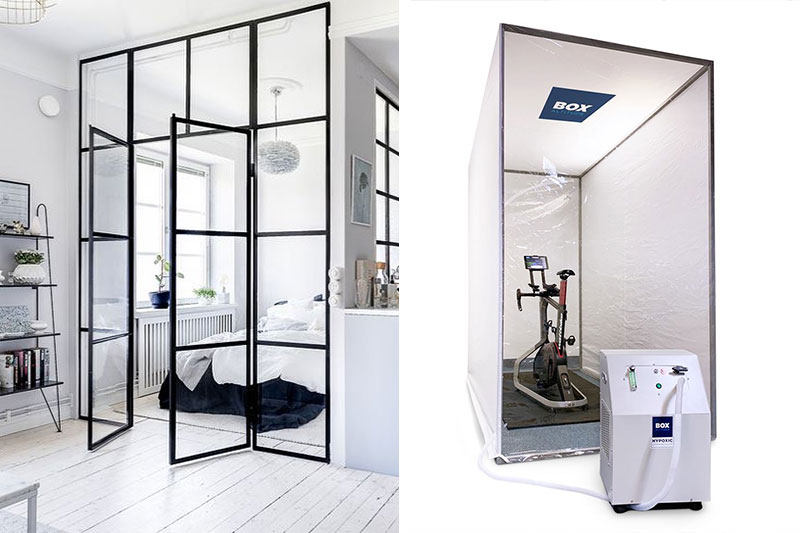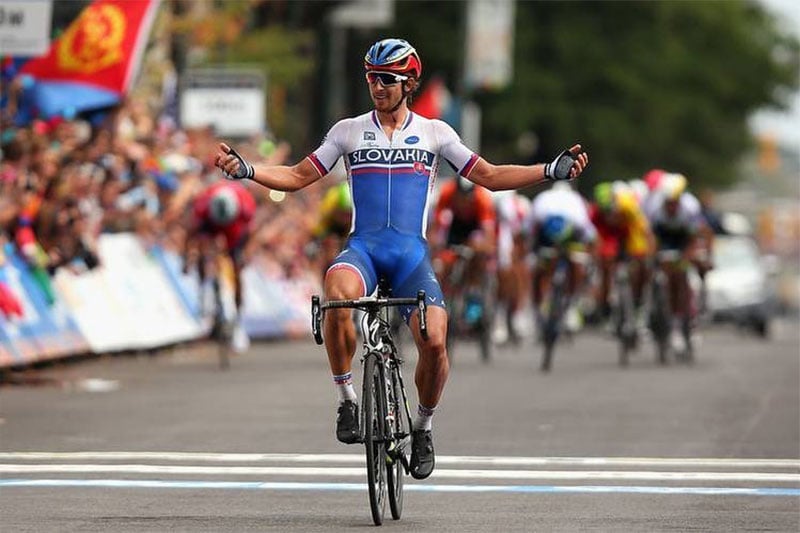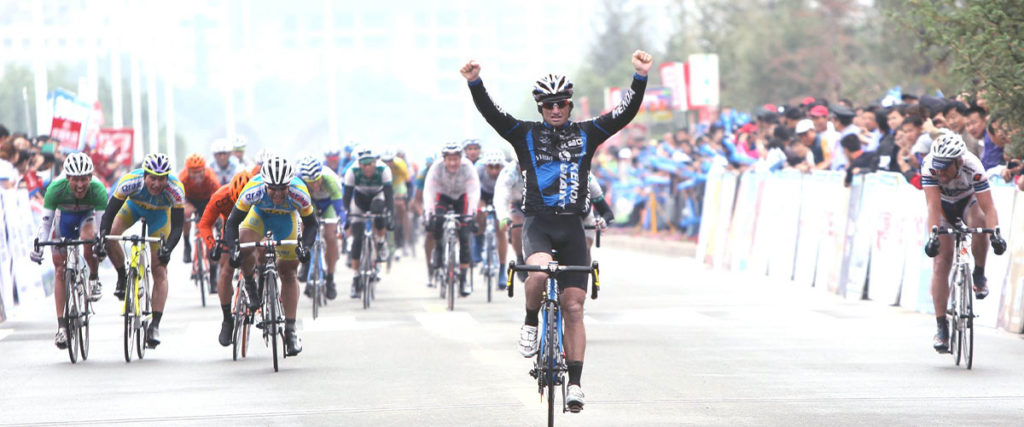There’s a reason Eliud Kipchoge, the man who just broke the 2-hour marathon mark, trains at altitude. Meet Box Altitude, an altitude simulator system created by ex-professional cyclist Rico Rogers that lets you reap the benefits of increased endurance and improved performance in the comfort of your own home.
It’s no surprise Eliud Kipchoge, the man who just broke the 2-hour marathon barrier, chooses to train at an altitude of 2400 metres in Kaptagat, Kenya. Long-billed as the legal way for athletes to gain an edge, high altitudes and their lower oxygen concentrations force your body to work harder, increasing the amount of O2 it can absorb naturally when in standard conditions, and your endurance with it. But, what if those benefits could be made available to any old person wanting to optimise their health? And, what if those benefits went way beyond athletic performance? These are questions that Rico Rogers, ex-professional Cyclist and Founder of Melbourne-based altitude training and sleep system company Box Altitude strives to answer. With his line of home-use altitude simulators, he claims that users can experience the same fitness benefits as Kipchoge, alongside weight loss, decreased risk of heart disease, increased energy levels and more. “Box Altitude helps people to have more energy, all day, every day. It’s like having a steady stream of coffee throughout the day, only healthier.” He talked Hive Life through the upsides of a life lived up high.

“I needed to be at my physical peak when I was cycling competitively, particularly when the competition made use of illegal performance-enhancing drugs,” says Rico of the discovery that led to him founding Box Altitude in 2011. “This, in turn, led to altitude training.” As a competitive cyclist who used to race professionally across Europe, Asia and Australia, he knew first-hand what the benefits of training up a mountain were. “It benefits endurance athletes the most, by building up their ability to sustain effort and their lactic threshold over races. But, it can also aid 100-metre sprinters by sustaining their burst of energy.” This is why he set out to deliver ‘Train at Altitude’ solutions for use at home for those who don’t have easy access to mountainous training centres. All they have to do is purchase his ‘Training Cloud’ for AUD 5500, an iPad-controlled training environment that consists of a tent to cover their bike or treadmill, a hypoxic compressor that recreates the conditions of training at up to 6,000 metres, and a training mask.
You might also like Breaking Down Biohacking: Silicon Valley’s Hottest New Health Craze
For Rico, the benefits of mimicking high altitude conditions via his various systems go way beyond increasing physical ability. “Athletic performance is a key part of our promotion, but we’re also pushing general health and wellness,” he explains. Having started off as a sport-based training concept, Box Altitude has subsequently branched out. Their ‘Sleep at Altitude’ systems – ‘Sleep Clouds’ and ‘Tents’ – enable users to recreate the conditions of sleeping at up to 3500 metres when paired with a hypoxic compressor. According to Rico, the upsides of this are wide-ranging as your body works to maintain O2 saturation levels, increasing metabolism to acclimatise, and thus allowing you to lose weight and get fitter while you sleep. “One of our clients, a business executive, came back to us and reported that he’d lost around 6% of his body weight by using our system. 6% may seem like a small amount, but it actually makes a huge difference to your health and lifestyle, plus the process also cleans and purifies the air in your bedroom by keeping the dust content low. And the great thing about these ‘Altitude Clouds’ and ‘Bedrooms’ is that you can sleep comfortably. Background noise is reduced to levels such that you can’t hear anything, while still making a difference to your body.”

With an ever-growing expansion that now branches across three continents, Box Altitude has already worked with a range of athletes from highly successful cyclists like Brenton Jones and Anuar Manan, to 1500-metre record holder middle-distance runner Ryan Gregson and MMA fighter Cris Cyborg. “With all the statistics and research to support it, altitude training is a no-brainer for athletes and Box Altitude solves the problem. We focus on accuracy and quantifiability, and the process of acclimatisation, gauging exactly what training altitudes you reach, rather than just a vague idea of where you are in training,” says Rico of why their system has an edge.
Still, that hasn’t meant all his users have been willing to share the secret behind their speedier times. “Athletes sometimes shy away from advertising, often when they don’t want competitors to know about these systems, and we have to sign a lot of non-disclosure agreements,” says Rico. “We often get rejected when we ask for a photo or a quote. It’s a pretty regular thing in the sports industry, so you have to find your way around it.” This is why, increasingly, the company is looking to emphasise the upside of their products for regular people. “Promoting through business people and executives can be an effective alternative, since, while they’re competitive in the business world, there’s not as much on the line for them when it comes to promoting health and wellbeing systems.”
Rico is careful to stress that altitude training is not something to take lightly. “You can’t acclimatise to altitude through three 45-minute sessions, regardless of what some companies would have you believe. False conceits like this muddy the waters, resulting in people using altitude training in a way where they might not see any effects. We’re continuing to find ways to spread positive and accurate experiences and get the right message out there.” And, alongside that push, he sees plenty of opportunity for growth. Next, they are looking at gyms installing their systems, and they already have landed their first commercial property offering simulated altitude sleep technology at Big Sky Retreats in Bright, Victoria. “We’re hoping to progress from the altitude space in Bright to installing Box Altitude systems in hotels for improved wellness and health footprints,” he outlines. “We’ve got 12 years of continued development ahead of us, and the systems we have now are just the footprint of what we want to keep pushing in the future.”
Related Articles
Virtual Reality To Fight Your Biggest Phobias
The CEO Going The Extra Mile, From FinTech to Ultramarathons





